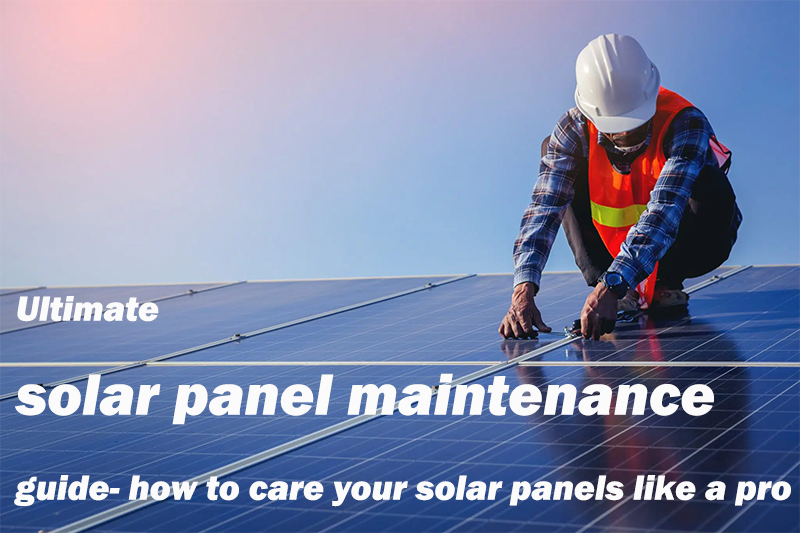
Main content:
- What are solar panels?
- How long do solar panels last?
- How many solar panels are needed to run a home?
- What are the components of a solar system?
- Do solar panels work at night?
- How solar panels work in the dark?
- What damages solar panels?
- How to tell if solar panels are damaged?
- Frequently asked questions on solar panel maintenance
- Do solar panels require maintenance?
- How often should solar panel maintenance be done?
- What should you look out for during solar panel maintenance?
- Are solar panels expensive to maintain?
- Do solar panels need to be cleaned?
- How you should clean solar panels?
- 12.Is it worth getting solar panels with a battery?
- Which battery is ideal for solar panels?
- Do batteries in solar systems need maintenance?
- Final thoughts
Home solar panels are a central part of a solar home energy storage system. You can save thousands of dollars simply by installing high-quality solar panels in your home. In addition to saving lots of money, you're going to make the world a greener place by using renewable energy. Solar panels can indeed last up to 30 years if taken care of properly. It, therefore, means that you'll have to make solar panel maintenance regularly to ensure that they last for long and run efficiently.
The best part is that solar panels require minimal maintenance to run. This article will help you do everything you need to do solar panel maintenance like a pro. You are going to learn:
- What solar panels are and how they function
- You’ll also understand what each component does in a solar panel
- You’ll get to understand what damages solar panels, how to tell if your solar panels are damaged and how to prevent the damages altogether.
Let’s dig right in!
1.What are solar panels?
A solar panel, as its name suggests, is simply a flat panel that absorbs the sun’s rays and generates heat or electricity. Solar panels are environmentally friendly - they rely on a renewable source of energy (the sun) to function.Check this out:Solar panels generate electricity by converting sunlight rays through special mirrors that concentrate solar radiation.

The process of generating electricity from the sun is known as the photovoltaic process. Once electricity is generated, it can be stored in rechargeable solar battery for future use.If the solar panel is used for heating, then the heated substance (for example, water) can be stored in thermal storage. Doing so will help retain the heat.
2.How long do solar panels last?
A high-quality solar panel can last for up to 30 years. However, that lasting duration comes with a condition that you’ll have to properly maintain your solar panels. Luckily for you, this article will help you understand the proper way for solar panel maintenance.
3.How many solar panels are needed to run a home?
Two primary factors determine how many solar panels you need to run a home:
- Average daily sunshine duration.
- The amount of power needed to power equipment in your home.
Here's how you can calculate the number of solar panels your home requires: you’ll first need to know the average amount of power consumption your house has had for the past year. In addition to that, since solar panels require the sun to run, you’ll also need to know how many sun hours you get in a day.Getting the average number of sun hours you get in a day will help you calculate the average amount of power your solar panels will receive. Consider the following example:
You own a home that has a monthly average power consumption of 1,000 kWh. Your select solar panels can generate a monthly average of 115 kWh with a wattage of 330 watts. You'll simply need your home's monthly average power consumption (1,000kWh) with the monthly power generation (115 kWh). 1000÷115 = 8.68 kW of solar panels.Now, to get the number of solar panels required to power your home, divide 8.68 kW with 330 watts. 8680 watts ÷ 330 watts ≈ 27 solar panels.
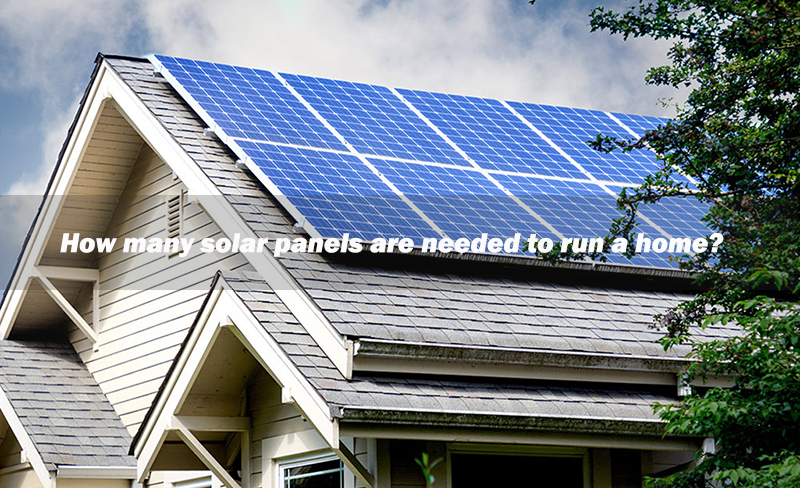
In summary:
- Get the monthly average power consumption first
- Get the monthly average amount of electricity your select solar panels can generate.
- Remember to check your solar panel’s wattage.
- Divide the monthly average power consumption with the monthly average amount of electricity your solar panels can generate.
- Divide the answer above by a single solar panel's wattage. Remember to convert kW to watts first before dividing.
Here’s something worth noting: When calculating the number of solar panels your home needs to run, it would be best if you’d check your solar panel’s efficiency rating. Doing so will help you understand the amount of electricity a single panel can generate.It is also worth noting that the amount of electricity a single solar panel can generate is affected by several factors including temperature, time of the day, where you’ve placed your panel, etc.
4.What are the components of a solar system?
Most solar systems have at least four primary components that help you power your home well. Check them out:
- First things first - your home solar system will certainly require the sun to run. It is the first primary component in any solar system.
- Solar panels - solar panels absorb sunlight and convert the sun’s energy either to heat or electricity. It is important to note that solar panels convert the sun’s energy to direct current (DC).
- An inverter - Your home’s appliances run on AC while your solar panel generates DC. Simply put, an inverter will change the current from direct to alternate so that you can power your home safely.When it comes to inverters, you might be interested in inverter battery companies, you can read Top 5 inverter battery companies on our website for more details.
- Battery - Most solar panels if not all will require somewhere to store electricity. The battery you choose to use for your solar panel should be a rechargeable battery.Among all rechargeable batteries, lithium batteries are the most frequently recommended as solar energy storage batteries.

Now, you are probably thinking to yourself: “Do solar panels work at night since they require the sun to power them?” Let’s check that out in the next section of the article.
5.Do solar panels work at night?
As you’ve read earlier in this article, solar panels work by relying on sunlight to generate electricity. Technically speaking, solar panels do not work at night - they simply cannot work since without solar radiation. You might be thinking to yourself yet again:“If solar panels do not generate electricity at night, how then does it power my home?”
6.How solar panels work in the dark?
Solar systems have batteries. Whenever solar panels generate electricity through the photovoltaic process, they then store the electric power in batteries. Therefore, it is very important to configure a high-performance energy storage battery for the solar system, so as to ensure that the solar power can be used safely when there is no sun. One of the best batteries that you can use as storage for your solar system is the lithium battery.
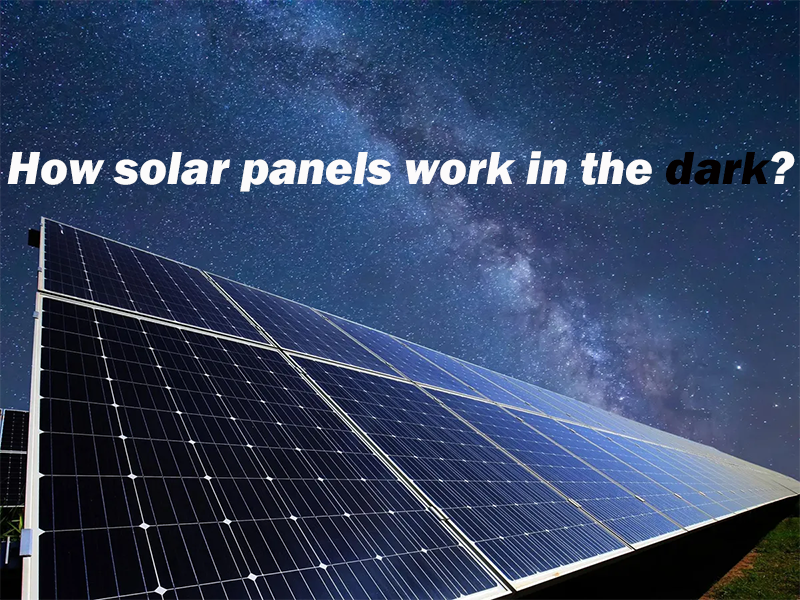
7.What damages solar panels?
Before understanding the methods of solar panel maintenance, first know what factors can damage solar panels. Three elements could damage the solar panels. Check them out:
- Water
- Hail storms
- Twigs, dirt, and leaves.
In the process of use, some dust, leaves and other sundries will inevitably fall on the solar panel, causing partial shadows on the panel, and these partial shadows will cause the current and voltage of some cells in the panel. All changes will cause the consequences of local heating. After a long time, there will be some obvious burnt hot spots.
8.How to tell if solar panels are damaged?
You can detect the voltage of the solar panel under light conditions, and at the same time detect the voltage under shadow conditions. Under normal circumstances, it should be higher than the voltage measured under the shadow conditions under the light conditions, and it will vary with the intensity of the light or the light. As the area changes, the voltage will change. If your solar panel is damaged, then its voltage will be less than 17V.

Here’s the deal: a defective solar panel will not generate power that is close to the panel’s maximum output. You can connect a load under light conditions to see if the load works properly, such as a low-power DC light bulb, or measure the current in the lead. Or you can judge the status of the solar panel by checking the appearance of the module panel. In addition, you can also choose to send the solar panels to a specialized agency for testing.
9.Frequently asked questions on solar panel maintenance
① Do solar panels require maintenance?
Yes, solar panel maintenance does need to be periodical, which is usually minimal. Maintaining solar panels is important because it ensures optimum performance - be it in generating electricity or producing heat.
② How often should solar panel maintenance be done?
If you are not living in a dusty area, maintaining the solar panels by cleaning them once every year and inspecting them is recommended. However, if you are living in dusty areas affected by hail storms, solar panel maintenance may need to be done more frequently.
③ What should you look out for during solar panel maintenance?
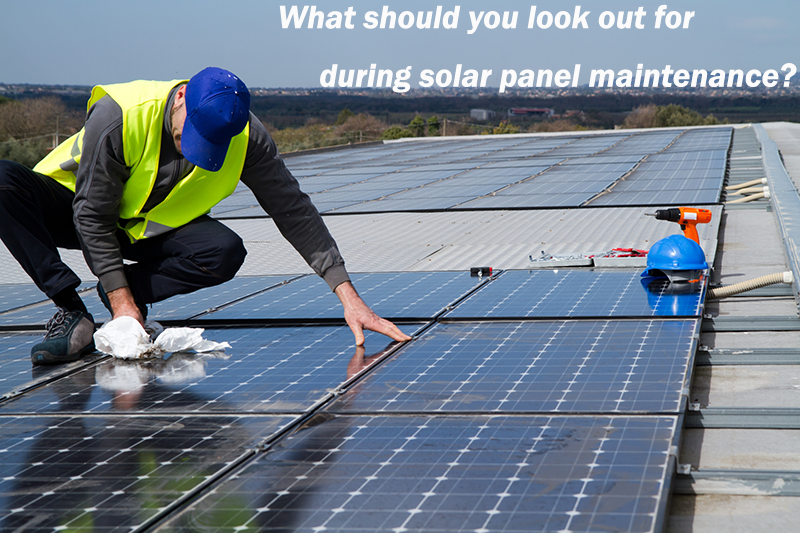
Clear solar panel maintenance considerations are beneficial for effective solar panel maintenance. There are five major things you need to look out for during solar panel maintenance:
- Ensure that the solar panels are clean from dirt, dust, leaves, or tree branches.
- Check and ensure that there are no corroded parts on your solar system
- Ensure that the solar panels do not have dents or any defects.
- Check the solar system’s switches for any defects.
- Check for wiring deterioration - the wires should be as good as new. If not, consider replacing them.
④ Are solar panels expensive to maintain?
For properly installed solar panels, the cost of solar panel maintenance should be inexpensive. It should also last for up to 30 years before having major breakdowns or requiring major service.
10.Do solar panels need to be cleaned?
Yes, solar panel cleaning is also a vital part of solar panel maintenance. Cleaning the surface of your solar panel is important as it gets rid of dirt and dust that prevent the maximum efficiency of the panels. Now, it is true that rain can wash away dirt and dust. However, it will not be as clean as doing it manually. Cleaning your solar panels manually is highly recommended.
11.How should you clean solar panels?
It would be best if you’d clean your solar panels using a soft cloth together with distilled or deionized water. You can also use normal house water with a softener which will work the same as distilled or deionized water. Please note that using an abrasive material to clean the solar panels will end up damaging them quickly.
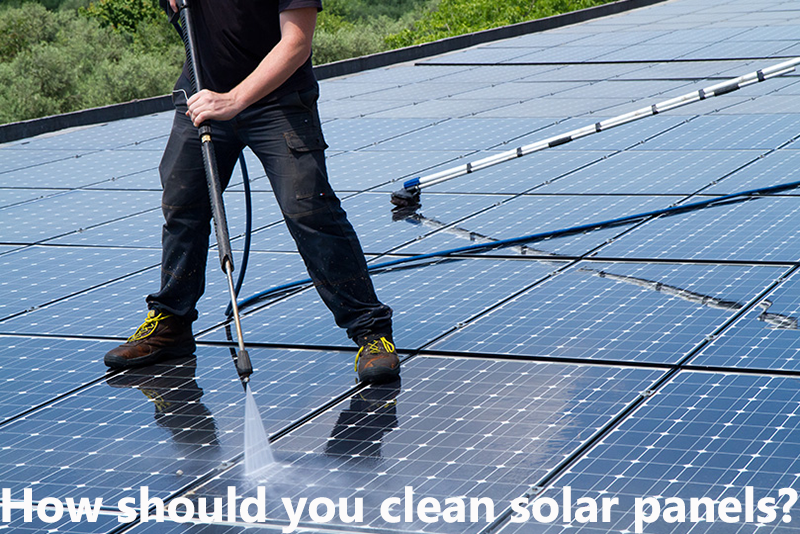
12.Is it worth getting solar panels with a battery?
Yes, having a battery that stores electricity from solar panels is important as you will be able to power your home at night with ease. On top of that, a long-lasting battery will also help you have power during days when the sun does not shine.The battery you choose to use will have a significant impact on how long it can last without recharging.
Also, the life of the battery can also affect the use of the solar panel system. If the battery has a small number of cycles, frequent replacement will affect the energy storage. Therefore, lithium-ion batteries with up to 4,000 cycles may be the best choice for solar panels.
13.Which battery is ideal for solar panels?
A lithium-ion battery is an ideal choice for solar panels. Lithium rechargeable batteries are the most popularly used batteries for solar panels worldwide. The reason why Li-ion batteries are widely used is that they do not consume a lot of physical space, and have a higher energy density compared to other battery types. In addition to that, most Li-ion batteries have a cut-off circuit board that prevents the battery from overcharging and over-discharging. On top of that, Li-ion batteries are durable.

14.Do batteries in solar systems need maintenance?
Li-ion batteries do not require any active maintenance, while lead-acid batteries require proper care and maintenance to extend their lifespan. Therefore, Li-ion batteries are more cost-effective than lead-acid batteries since it saves maintenance costs. You can always keep an eye on them and check for any anomalies - which are also rare.
15.Final thoughts
Having a solar system can help you save a lot of money. Solar systems are environmentally friendly as they do not leave any carbon footprint. Having a high-quality solar system installed on your home can last for up to 30 years without any high maintenance issues.
When maintaining your solar panels, it would be best to clean their surfaces using a soft cloth and distilled or deionized water.Remember, it would be best to get a solar system with a battery for electricity storage. Leading experts recommend using lithium ion solar battery as it is smaller and pack a lot of power (higher energy density compared to other battery types).
















